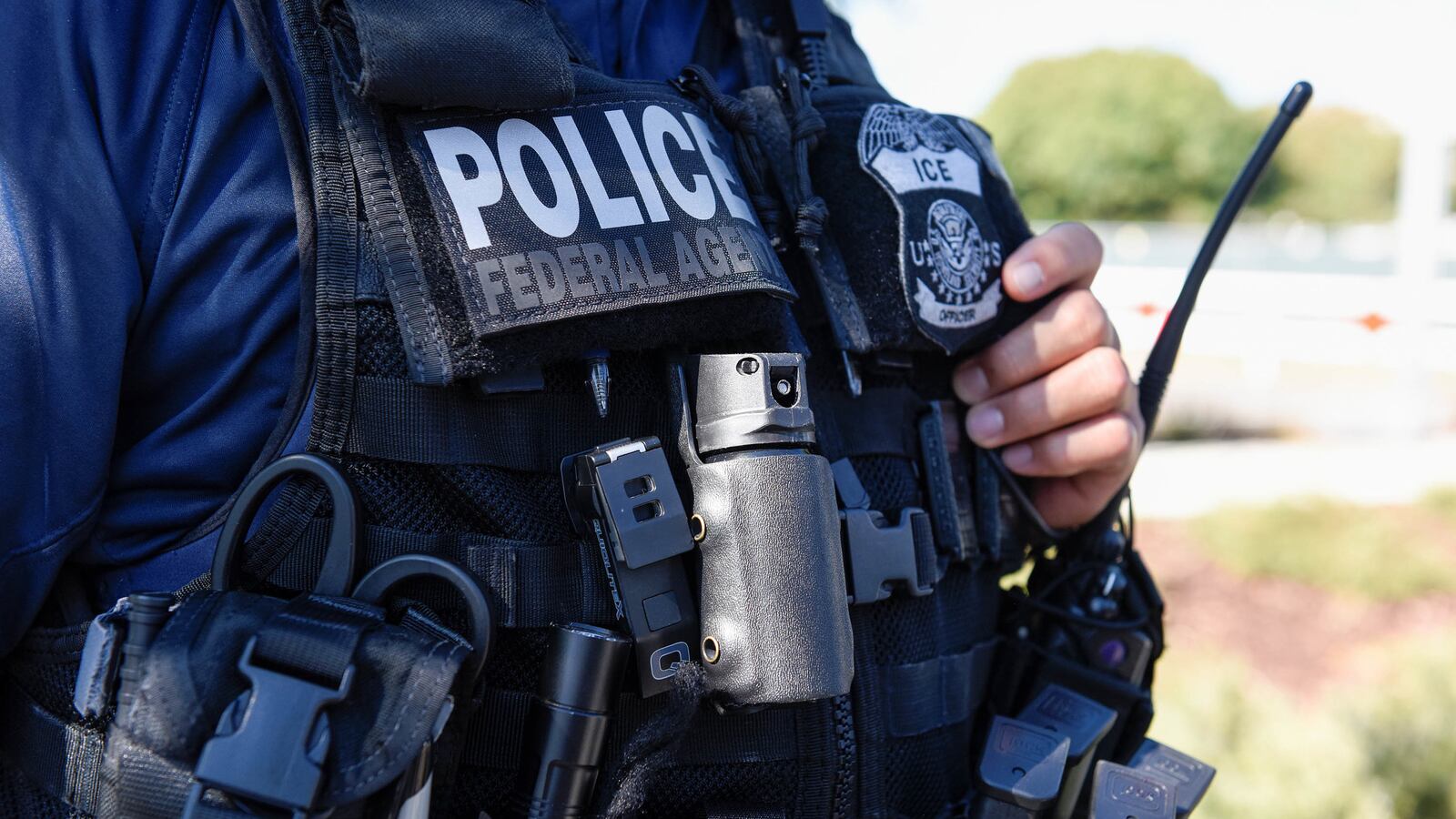In his prior feature-length and short documentaries, director Rodrigo Reyes has investigated the North American immigrant experience via both intimate character studies (2016’s Lupe Under the Sun) and expansive expressionistic portraitures (2013’s Purgatorio: A Journey Into the Heart of the Border). His latest, After the Raid, is a combination of those two approaches, a poignant 25-minute short film that investigates the aftermath of an immigration raid through the lens of a wife and new mother left to fend for herself, a long-time resident trying her best to help in whatever way she can, and a priest tasked with bringing some measure of comfort—and solace—to his fractured community.
After the Raid (available on Netflix now) is a somber work that, for the most part, eschews contextual detail, employing canny aesthetics to evoke the larger issues, and tensions, at play. Reyes opens with creeping shots through first a dense forest, then a wooded road, and finally a street alongside a sprawling field under a big sky. We’re in farmland country—Tennessee, to be particular. Those initial images are followed by pans alongside a small collection of strip-mall shops and a gas station, and also a seemingly abandoned manufacturing plant. Life is hard to detect in this quiet landscape; what exists feels creaky, dilapidated, and bordering on the haunted, as if the spirit of the place has been sucked dry by some malevolent force.
Over views of the gone-to-seed factory, TV news voices provide a modicum of background. An IRS financial crimes raid at the local meatpacking plant in April 2018 snowballed, unexpectedly, into an immigration investigation. The business’ bosses, we’re informed, never asked their labor force who they actually were or—more crucially still—where they came from, opting instead to simply pay them with envelopes of cash. As one journalist says, “Many are calling this the largest workplace raid in the past decade.”
It’s a familiar story, one retold over and over again in various corners of 21st-century America, and After the Raid’s spartan aesthetics—which include a score of mournful strings that set the melancholy mood, often a bit too emphatically—cast the material as a microcosm of a far larger trend, and dilemma. Also familiar is the sad countenance of Yahel, a young woman introduced sitting in the messy living room of her trailer-park residence, her toddler son on her lap playing with a toy phone. She asks the boy if he’s speaking to his father on the device, and it’s clear that this imaginative game is born from crisis—namely, that his dad, Cristino, is one of the many laborers who has been deported by ICE for entering, and working in, the country illegally.
Yahel’s predicament is all too commonplace, especially in rural working-class locales such as this. Asked how she feels in the wake of her husband’s departure, she tearfully says, “It’s very hard to explain, because you’ve built a family, a life with that person. And suddenly, he’s gone in such a drastic way. You don’t even get a chance to say goodbye to them. I mean, that day, like every day, we got up and said goodbye, thinking we’d see each other that afternoon. And next thing you know, nothing.” A friend of Cristino, who’s apparently awaiting word about his own potential deportation, talks about the fact that some came back from the raid, but those that didn’t are now likely on their way to their native countries, be it Guatemala or Mexico.
After the Raid segues to St. John Paul II Catholic Mission, whose façade features signage in both English and Spanish—a necessary touch for a place that holds separate services, in both languages, for its divided congregation. There, a bushy-mustached priest oversees the baptism of a Latino brother and sister. Christ’s presence is front-and-center in this place of worship (including via paintings of Jesus and Mary), as well as in the nearby home of a Caucasian churchgoer, where crosses hang on the wall and the American flag flies in the backyard. In response to the raid, this Christian woman has taken in a Latino family of four—a decision rooted in her devout belief that “the scripture tells us that we have to reach out, that we have to help our brothers.” Whether laughing with her new roommates at her patio grill, or singing at the dinner table, she’s restored a measure of harmony, at least temporarily.

A scene from the documentary short After the Raid.
Netflix“I don’t think turning your head the other way helps the problem at all,” she confesses, and though she eventually forwards a vague solution to this situation, After the Raid doesn’t attempt to make a policy argument. Rather, its focus is the human cost of our current immigration quagmire, which leads only to individual and familial disintegration, and, on the basis of this specific Tennessee town, economic hardship as well. Shots of storm clouds rolling in as the priest comes to visit—and pray with—Yahel speak loudly about the dark days ahead for all involved, whose circumstances have been hopelessly complicated, and whose faith in God has naturally been shaken by this ongoing ordeal.
Late snapshots of the rain-drenched town, its streets empty and its buildings closed and crumbling, suggest an enclave weeping over an injury for which there is no easy remedy. In a recognizably American place where crowds gather for high school football games, and pious people of all ages and colors gather to break bread together, things have fallen apart in some fundamental way. And in its final moments—of water rushing from street sewer to river to lake and beyond, as news anchors report on a historic Mississippi immigration-detention operation—After the Raid contends that the breakdown is spreading.


